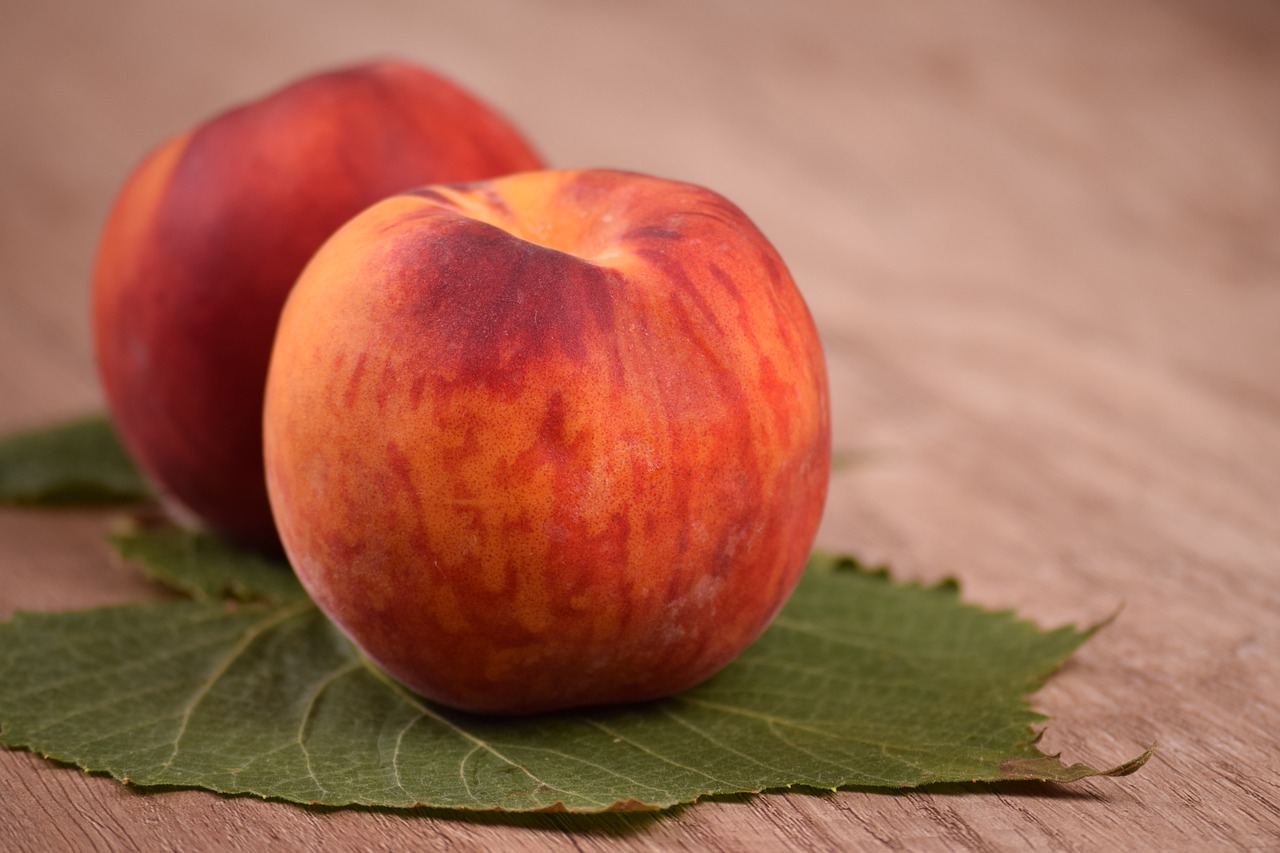
The delightful taste and juiciness of peaches make them a sought-after summer treat for humans. But as responsible pet owners, we must be cautious about sharing this delectable fruit with our canine companions. In this article, we will explore the potential risks and benefits of feeding peaches to dogs, based on expert advice and insights.
The Nutritional Aspect
Peaches offer an array of beneficial nutrients for humans, but what about dogs? These fruits contain essential vitamins such as A and C, as well as dietary fiber. The presence of antioxidants in peaches can contribute to overall well-being in dogs too.
Are Peaches Safe for Dogs?

The answer is a bit more complex. While peaches themselves are not inherently toxic to dogs, certain precautions must be taken before sharing them:
a) Pit Hazard: The pit of a peach can pose a choking hazard or, in extreme cases, cause an intestinal blockage if ingested by dogs. Therefore, it’s essential to remove the pit entirely before offering any peach to your pet.
b) Moderation is Key: Like any treat, peaches should be given to dogs in moderation. Overconsumption may lead to stomach upset or diarrhea due to the fruit’s natural sugars and fiber content.
c) No Canned or Preserved Peaches: Canned or preserved peaches are not suitable for dogs, as they often contain added sugars or artificial sweeteners like xylitol, which can be harmful to our canine friends.
Potential Benefits for Dogs

In limited quantities and under certain conditions, peaches can offer certain benefits to dogs:
a) Hydration Support: The juicy nature of peaches can contribute to your dog’s hydration, especially during hot weather.
b) Vitamin Boost: The vitamins and antioxidants in peaches may aid in supporting your dog’s immune system.
c) Dietary Enrichment: Occasional treats like peaches can provide variety in your dog’s diet and add some excitement to mealtime.
Potential Risks to Consider

Alongside potential benefits, there are risks to be aware of:
a) Allergic Reactions: Some dogs may be allergic to peaches, leading to adverse reactions such as itching or gastrointestinal issues. If you notice any signs of allergies, discontinue feeding peaches and consult your veterinarian.
b) Diabetes and Obesity: The natural sugars in peaches may not be suitable for dogs with diabetes or those prone to weight gain.
c) Pre-existing Health Conditions: Dogs with certain health conditions, such as pancreatitis, should avoid high-sugar treats like peaches.
Expert Recommendation

Before introducing any new food into your dog’s diet, it’s crucial to consult with a veterinarian. A professional can assess your dog’s individual health needs, potential allergies, and dietary requirements to determine if peaches are a safe and suitable treat for them.
In conclusion, while peaches can offer some nutritional benefits for dogs, pet owners should exercise caution and feed them in moderation. Prioritize your dog’s health and well-being by providing a well-balanced diet tailored to their specific needs. Remember, the key to a happy and healthy canine companion lies in responsible and informed choices as we cherish every moment spent with our furry friends.